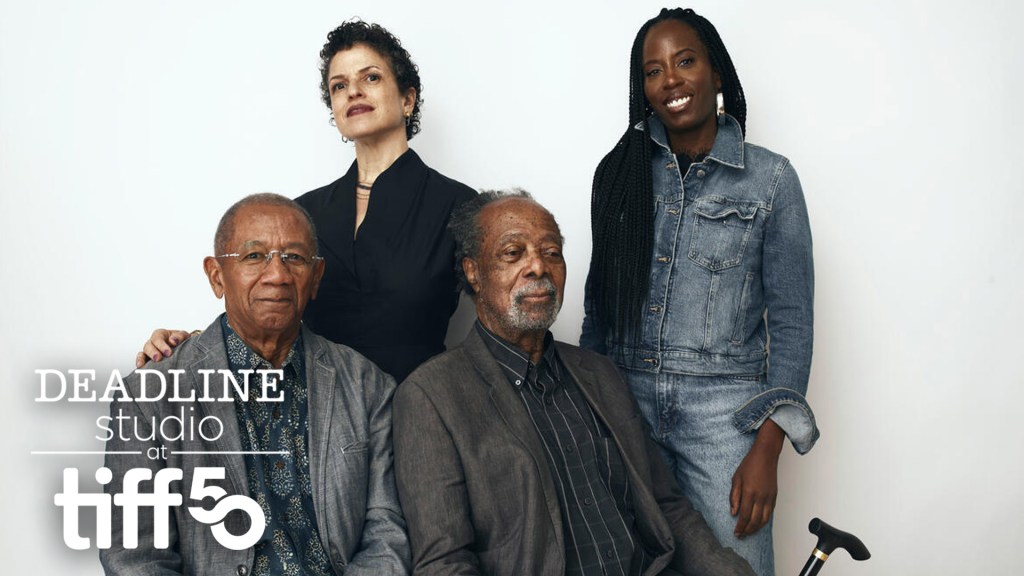True North, Michèle Stephenson’s documentary premiering at the Toronto Film Festival today, explores a critical moment in the Black liberation movement – when a group of mostly young people in Montreal came together in the late 1960s to fight against oppression and systemic racism in the province of Québec and Canadian society.
The film produced by Stephenson and Leslie Norville gained support from the Corporation for Public Broadcasting which recently announced it will fold after the Republican-controlled Congress rescinded its funding under pressure from Pres. Trump. The documentary is also supported by ITVS, Black Public Media, and Firelight Media, institutions with strong ties to PBS, the Public Broadcasting System that has become a target of the Trump administration.
“This is a really strange and bizarre time. Stories like True North and others like it are no longer going to have the support or a platform,” Norville said as she and Stephenson came by Deadline’s studio in Toronto, joined by two of the activists from their film who played key roles in that uprising in Montreal. “It’s a moment that I think people should really be fearful of because when we are being silenced like this, what’s next?”
“In the case of True North, it’s not just the content and the lived experiences [of participants], but it’s also the form,” Stephenson said, referencing the film’s bold stylistic approach. “It’s about the independent artist, and we are facing a fascistic regime that is intent on destroying independent cinema, intent on destroying not just our voices, but any kind of independence with regards to freedom of speech, freedom of how we tell our stories. We are at a battle of narratives. We’re at a crossroads that is going to require a lot of effort from all of us to kind of rally and follow the lead of those who instigated the movement for greater justice in ‘68 and ‘69 as our beacon for what we need to do next.”

‘True North’
Courtesy of Studio 112
That movement has been largely forgotten today, but at the time it shook Montreal, the province of Québec and Canada as a whole. It came to a head in 1969 when young people occupied Sir George Williams University (now known as Concordia University) demanding the university confront institutionalized racism against the Black student body.
“One has to understand that it occurred as a revolt within a larger context of political change,” noted Norman Cook, one of young activists from the film, “and that is the emergence of Québec power and the retrieving, if you will, of their rights [the French-speaking populace] within the society… It did also surface forms of white racism as well that often were deflections of anti-French racism onto the Black population.”
RELATED: Watch trailer for True North
Rodney John, another major figure in the uprising at Sir George Williams University, explained that he moved to Canada in 1965 from Saint Vincent in the eastern Caribbean, a place he described as having a sense of cohesion despite differences between people. Not so in his new country, he would learn.
“When I came to Canada, I discovered that for a number of years I was colored, then I was a Negro, and then at some point I was Black,” John recalled. “Okay, what did that mean to me as an individual? The other thing that was really annoying, the assumption of integrity, honesty, that supposedly was the foundation of white society was totally destroyed in dealing with people who were white. To move from that island, to come to Canada to confront racism… I came in ‘65 and today I still do not understand. I wish someone would explain to me.”
Watch the full conversation in the video above.
The Deadline Studio at TIFF is hosted at Bisha Hotel and sponsored by Cast & Crew and Final Draft.

